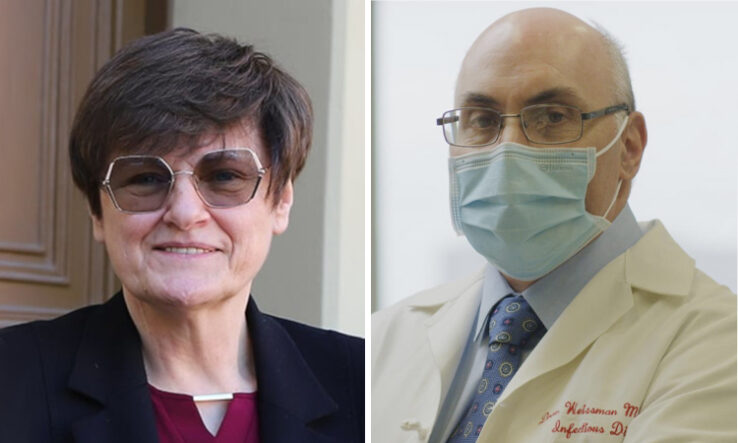
Images: Szegedi Tudományegyetem and Nicholas D'Amico [CC BY-SA 4.0], via Wikimedia Commons
Katalin Karikó and Drew Weissman’s work was vital for vaccine development during Covid pandemic
This year’s Nobel Prize for medicine has been awarded to researchers who made discoveries about how the body responds to the genetic material called messenger RNA, thereby paving the way for the development of Covid-19 vaccines.
Through their research on mRNA, Katalin Karikó and Drew Weissman “contributed to the unprecedented rate of vaccine development during one of the greatest threats to human health in modern times”, said the prize committee on 2 October.
The pair share the 2023 award “for their discoveries concerning nucleoside base modifications that enabled the development of effective mRNA vaccines against Covid-19”. Nucleoside bases are molecules that closely resemble those that make up mRNA, which has a natural role in biological protein production, as well as being increasingly useful in biotechnology.
During the 1990s and the following decade, by improving the understanding of how mRNA interacts with the immune system, Karikó and Weissman paved the way for it to be used for vaccines, including some of those that helped the world bring the Covid pandemic under control.
Karikó was born in Hungary and trained at the University of Szeged and the Hungarian Academy of Sciences in Szeged. She moved to Philadelphia to do postdoctoral work at Temple University and also worked at the University of the Health Sciences, Bethesda, as well as the University of Pennsylvania, where she did much of the Nobel-cited work with Weissman. She has held senior positions at Biontech, one of the companies that developed a Covid vaccine, and currently holds positions at both the universities of Szeged and Pennsylvania.
Weissman was born in Lexington, Massachusetts, and was taught at Boston University, with clinical training at Beth Israel Deaconess Medical Center at Harvard Medical School and stints at the National Institutes of Health. He set up a research group at the University of Pennsylvania and is currently director of the Penn Institute for RNA Innovation.